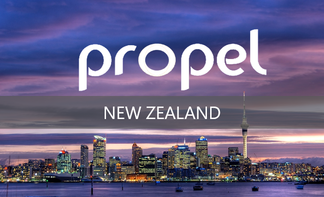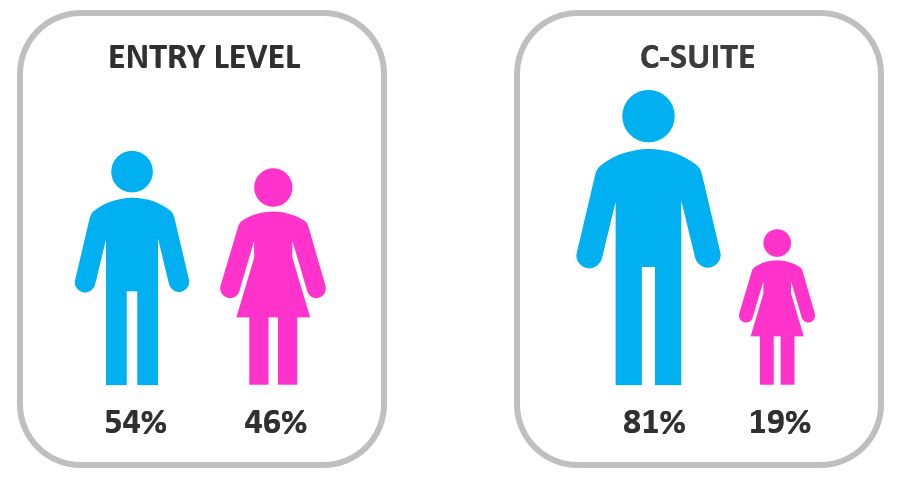Our New Zealand office is led by Jenny Dwyer and Lucy Cennamo-Jones who together have more than 25 years of experience in the talent management field. Both Jenny and Lucy are Registered Organisational Psychologists and are very excited to start designing and delivering technology enabled consulting solutions to clients in New Zealand.
In fact, the Propel NZ team has hit the ground running and already delivered a first project for a new client!
In fact, the Propel NZ team has hit the ground running and already delivered a first project for a new client!
Meet the Propel NZ Team: Jenny Dwyer and Lucy Cennamo-Jones
Client Story!
|
Propel interviewed teachers across multiple grades and members of the Senior Leadership team to identify current challenges at JESS, as well as successes. Themes identified included training and development opportunities, empowerment and reward. After analysing exit interview data, Propel used the factors that were identified as the most relevant to JESS to tailor a short and user-friendly pulse survey with the intention to measure engagement trends over time. The survey will be launched 3 times a year, measuring trends and providing JESS with data to assist in identifying where they need to focus their attention, as well as highlighting areas staff are happy.
A pulse survey enables organisations to gather rich data frequently as well as acting as a metric to measure the impact of interventions or changes put in place to address the challenges identified by analysing the survey data.
Propel Breakfast Club!
|
Over the past few decades we have seen the topic of women in leadership being increasingly promoted and becoming more prevalent on organisations’ agendas. Nonetheless, we still see a clear under-representation of female leaders in senior positions both in the GCC and the rest of the world.
When looking at the barriers faced when seeking to attract, hire and retain high potential women, talent experts attending our Breakfast Club Session discussed a number of viewpoints on the topic. Given the emotive nature of the topic, various perspectives and schools of thought were shared.
It is widely believed that companies are responsible for reducing the gender gap in the workplace and promoting women in leadership. Nonetheless, it was explored that smaller companies may find this more challenging when it comes to the topic of maternity leave. Regardless, it was concluded that it is important that companies, irrespective of their size, accommodate for women, and men, taking maternity or paternity leave and put plans for this in place in advance to support both the employees and the organisation.
When it comes to reducing gender bias, the first and maybe most common school of thought is to actively educate the workforce on gender bias through diversity and gender equality training. However, mandatory training in the area of diversity and inclusion can actually have adverse effects, drawing attention to and exaggerating the differences as opposed to reducing them, and generating increased animosity toward the groups in question. Consequently, it is advised that such training is handled carefully, with many companies now opting for voluntary training which is found to have a better success rate.
Other interventions found to increase diversity are those which frame diversity positively rather than negatively, generate engagement, increase contact between the different groups and play on people’s social accountability or drive to be seen to be doing the right thing. Such interventions include college recruitment targeting women, diversity task forces and mentoring.
Our personal take-away is that whilst a general shift in how women are perceived and treated needs to happen to break the cycle of outdated gender stereotypes and biases, in companies, a push must come from the top if we are to see any substantial and lasting change concerning women in leadership. Similarly, if we do not see diversity and gender equality at the top of organisations, how can we expect such values to filter through and be promoted at other levels?
When looking at the barriers faced when seeking to attract, hire and retain high potential women, talent experts attending our Breakfast Club Session discussed a number of viewpoints on the topic. Given the emotive nature of the topic, various perspectives and schools of thought were shared.
It is widely believed that companies are responsible for reducing the gender gap in the workplace and promoting women in leadership. Nonetheless, it was explored that smaller companies may find this more challenging when it comes to the topic of maternity leave. Regardless, it was concluded that it is important that companies, irrespective of their size, accommodate for women, and men, taking maternity or paternity leave and put plans for this in place in advance to support both the employees and the organisation.
When it comes to reducing gender bias, the first and maybe most common school of thought is to actively educate the workforce on gender bias through diversity and gender equality training. However, mandatory training in the area of diversity and inclusion can actually have adverse effects, drawing attention to and exaggerating the differences as opposed to reducing them, and generating increased animosity toward the groups in question. Consequently, it is advised that such training is handled carefully, with many companies now opting for voluntary training which is found to have a better success rate.
Other interventions found to increase diversity are those which frame diversity positively rather than negatively, generate engagement, increase contact between the different groups and play on people’s social accountability or drive to be seen to be doing the right thing. Such interventions include college recruitment targeting women, diversity task forces and mentoring.
Our personal take-away is that whilst a general shift in how women are perceived and treated needs to happen to break the cycle of outdated gender stereotypes and biases, in companies, a push must come from the top if we are to see any substantial and lasting change concerning women in leadership. Similarly, if we do not see diversity and gender equality at the top of organisations, how can we expect such values to filter through and be promoted at other levels?
|
Talk to Charlotte, it's her favourite subject! [email protected] Charlotte on LinkedIn |
|
I’m a proud Propeller!
Meet Mana Ghasemi Tell us about you
My name is Mana Ghasemi, I am a German-born Iranian-Canadian and a Talent Management specialist. I completed my MSc. in International Human Resource Management in the UK and moved to Dubai approximately 5 years ago when I officially became a proud Propeller. Moving to Dubai has been a great adventure as I have felt I have been able to grow personally and professionaly by partnering with a diverse range of clients from Tokyo to New York to design and deliver solutions. |
What did you do before?
After I completed my BSc. Business Management in Toronto, I moved to Iran and worked in the HR department of UNODC where I carried out the day-to-day HR operations.
What keeps you busy at the moment?
It has been a very busy start of the year with a lot of design and delivery of Leadership development programs and best-practice objective assessment training modules. I’m currently working on a very exciting project with a renowned property development company to develop a holistic online assessment solution to enhance their talent acquisition process across all three levels of the organisation. Also, managing and designing our Propel public training courses which I’m very excited to launch later this year.
Enjoying it?
Definitely! As I mentioned, it has been a happy / busy time for us which means on a daily basis, I’m being reminded what a supportive and positive team I have and hence it makes my day-to-day experience even more enjoyable. Also, as an extrovert, the increased opportunity to interact and deliver our training solutions to our clients is what I truly enjoy and feel energised by. The most rewarding moments are the ‘aha’ looks on our delegates’ faces. Given that the nature of our workshops are interactive, they also provide me with the opportunity to learn more and more about different organisations from delegates.
Anything quirky you want to share?
I’m a vegetarian who truly cares about the environment and animals, especially my dog, Bailey, who some would say has a better life than I do ;-)
Contact Mana on [email protected] - Mana on LinkedIn
Contact Us:
|
|








